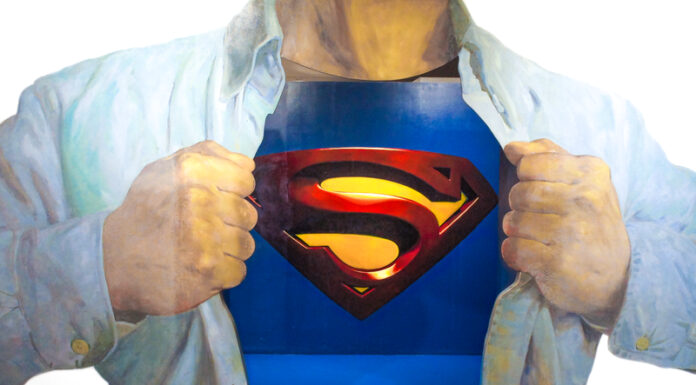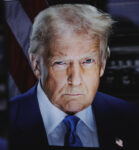The White House faced criticism on social media after sharing an altered image of President Donald Trump in a Superman costume on its official X account. The image depicted a muscular Trump alongside the phrases “A Trump Presidency” and “Truth, Justice and the American Way.”
This post coincided with the release of a new Superman film, which drew criticism from conservative voices following filmmaker James Gunn’s comments on the film’s themes of American immigration. Gunn described Superman as “an immigrant who came from other places and populated the country,” emphasizing the film’s celebration of “basic human kindness.”
Some right-wing commentators labeled the movie “woke” and voiced disapproval without having seen it. In response, the White House utilized Superman imagery in Trump’s political messaging, a move that many social media users found absurd.
Democratic Representative Robert Garcia remarked on the post, suggesting Trump was more akin to Superman’s nemesis, writing on X, “He’s literally Lex Luthor.” This drew attention to the contrast between Trump’s portrayal and his administration’s anti-immigration policies.
MSNBC host Mehdi Hasan highlighted the unconventional nature of White House communications, noting a perceived double standard in media coverage of Trump’s social media activity. Hasan suggested that similar posts from the Biden administration would have led to more controversy.
This incident is part of a broader pattern of unconventional White House social media activity during Trump’s second term. In February, a Valentine’s Day message was posted featuring Trump and border czar Tom Homan, offering a poem that focused on anti-immigration themes.
The Congressional Hispanic Caucus responded critically to the Valentine’s Day post, emphasizing the seriousness with which they approach their work, in contrast to the administration’s stance on immigration, which they described as inhumane.
Social media users expressed skepticism about the Superman image, questioning its origin from an official government account. Nigerian journalist Nigel D’Souza commented, “This is not a parody account.”
The White House’s social media approach has been compared to state media tactics. Press Secretary Karoline Leavitt’s statements about Trump have been likened to propaganda, particularly her claims about the administration having “truth on our side.”
The administration has also changed White House digital communications, such as removing the Spanish-language version of the official website shortly after Trump’s inauguration, thus removing a resource for Spanish-speaking Americans.
The Trump administration has released fewer transcripts of the President’s public remarks than previous administrations. A HuffPost analysis revealed that only 29 transcripts were published out of 146 public comments made during Trump’s first 100 days.
Additionally, various government websites containing health information and resources on reproductive rights and LGBTQ-related content have been removed, reflecting broader policy shifts.
Media relations have further deteriorated with the removal of HuffPost and The Associated Press from the White House press pool, breaking a long-standing precedent for transparent coverage.
The Superman image controversy highlights the administration’s distinctive approach to communication, which combines entertainment with politics. While some view these posts as effective, others argue they undermine the dignity of the presidency.
International observers have noted the distinctive nature of the White House’s social media strategy, with some suggesting foreign leaders find amusement in its unconventional style. The Superman post has contributed to a series of incidents that have attracted both domestic and international attention.
The administration’s focus seems to be on drawing attention and generating headlines rather than providing traditional government communications, reflecting Trump’s ongoing emphasis on media presence, even when the attention is mainly negative.








